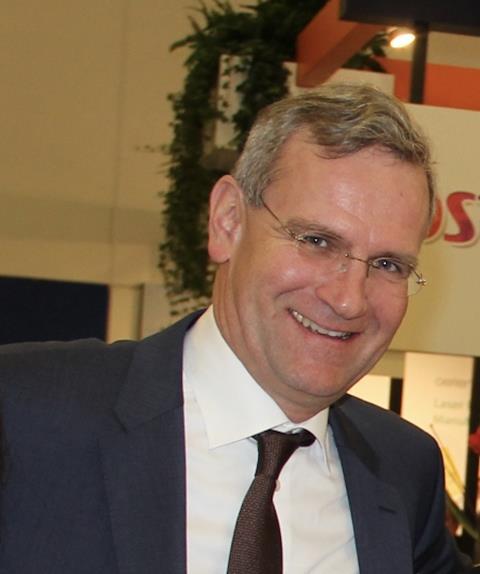With the EU’s Corporate Social Responsibility Directive, considering your business’s environmental and social impact is becoming legislation, and it will be in companies’ financial and strategic interest to come together and embrace the change
Cast your mind back just three years, and you can only conclude that the level of uncertainty in the world is increasing. It’s war-related. It’s climate-related. It’s water-related. It’s health-related. Politically, we appear to be shifting further and further toward the right, not just in the US, but all over Europe too.

So the key question regarding sustainability is, what is within my circle of influence as a company and as a sector?
In the past, sustainability, whether concerning the environmental or social impact, was something for the idealists and frontrunners. That’s no longer the case. Now, with the CSRD, it’s becoming legislation.
The Corporate Social Responsibility Directive is effectively a Trojan horse. When you open it up, you find all the elements of the new economy, as we shift from a short-term profit, shareholder-first, neoliberal approach to a stakeholder-driven economy.
Through a materiality analysis, your company will have to define what the impact of its economic activities is, not just for shareholders, but also for people and planet. Then you have to start measuring and collecting data to find the gap between where you are and where you need to be.
In the future, if you don’t have a good plan, and if you’re not transparent about your impact, then you won’t get assurance from your financial auditor and hence risk bankability. That includes a management plan on what you’re going to do about this gap and how you are going to reduce your impact, how you are going to future-proof your supply chains, so they become less vulnerable to climate-related disruptions and water stress.
And that’s not all. What are you going to do to make sure that there is a fair distribution of wealth throughout the supply chain? What are you going to do about child labour? What about living wages? Since you can’t achieve all this overnight, you will have to implement some sort of plan.
Of course, there are other risks if you don’t address these issues. Your customers and environmental groups will increasingly ask questions. Your supply chains will become more and more vulnerable. If you don’t invest in soil fertility and the water-holding capacity of your soils, you risk flooding and drought, which will affect your profit and loss. So by investing in sustainability, you’re not only de-risking, you’re future-proofing your business at the same time.

The whole idea behind our Robin Food Coalition is to encourage small and medium-size companies to unite for impact. By collectively employing the services of an accounting firm, for example, companies can get a huge discount, and all of a sudden the process can become very affordable.
In addition to the financial advantage of uniting for impact, you also unlock the collective intelligence of all these companies. There are quite a few data collection aspects that not only apply to individual companies but to the entire sector. So it’s time for sector initiatives that unite powers, not just to become compliant and to de-risk and future-proof businesses, but also to storm ahead and use this new impact transparency as a unique selling point.



